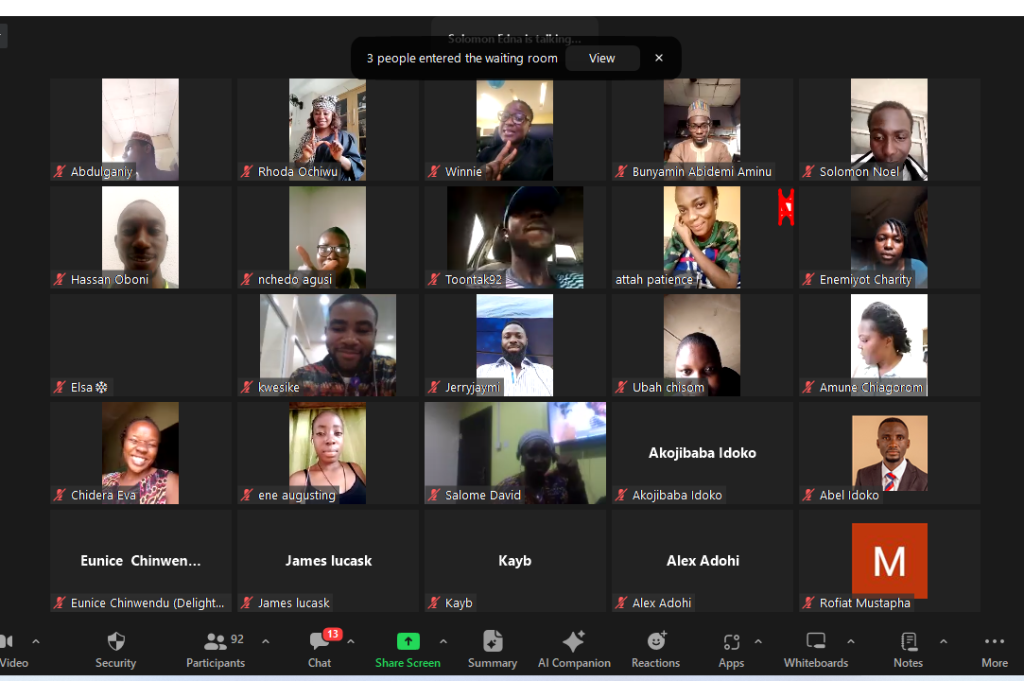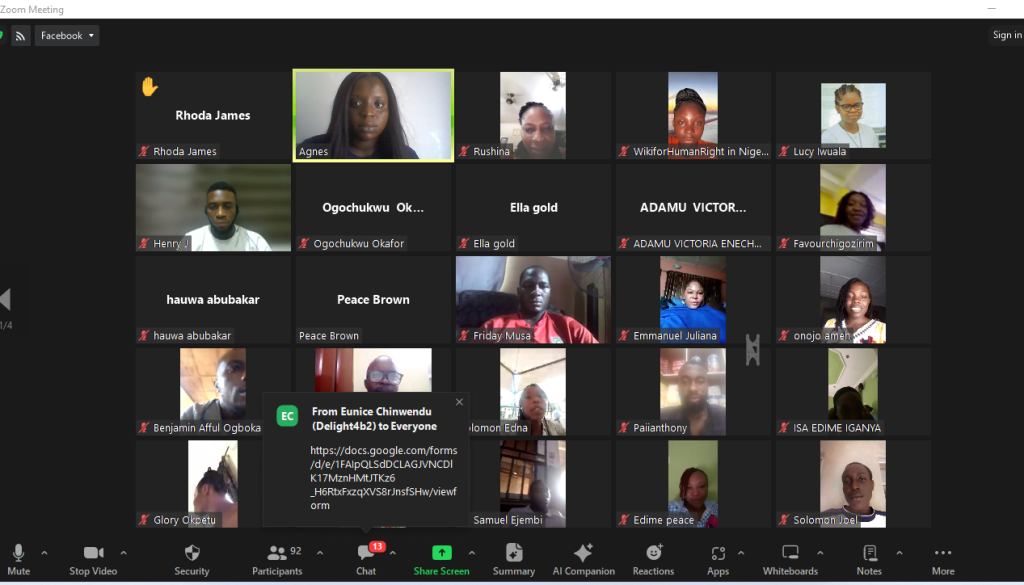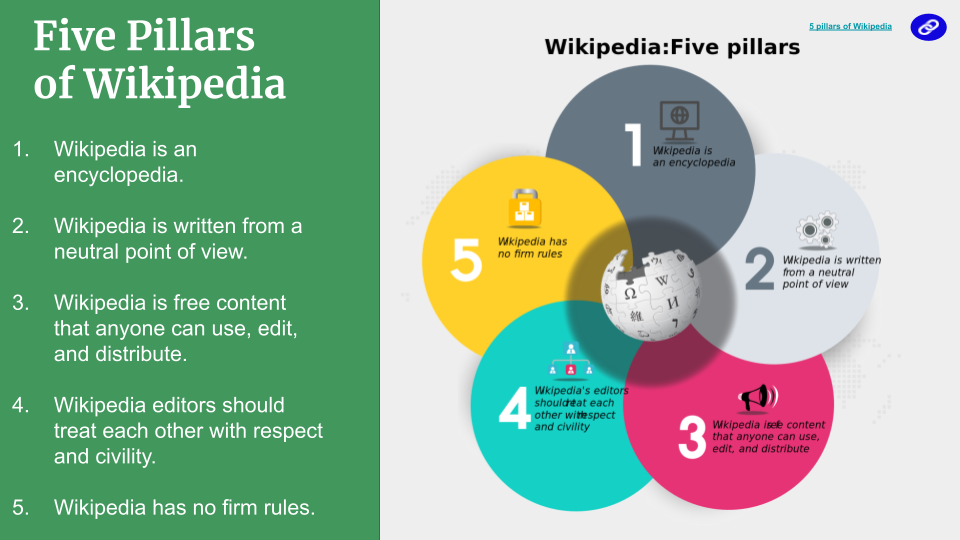

On the 5th and 6th of July 2024, the WikiForHumanRights (W4HR) in Nigeria 2024 Campaign hosted its 1st and 2nd Wikipedia online training sessions. The sessions, titled “Introduction to Wikipedia” and “Performing Major Edits on Wikipedia,” spotlighted Precious Kenechukwu, the Senior Partnership Officer of the Climate Action Organization, who spoke about their initiatives’ alignment with the W4HR in Nigeria 2024 Campaign and how they are pioneering transformative change at the intersection of Africa’s resilience restoration and green, sustainable socio-economic development.

The session progressed with Barakat Adegboye, the Programs Lead Intern at the Wikimedia Nigeria User Group, leading the Wikipedia training with moderation support from Agnes Abah, the local coordinator for the W4HR 2024 in the Igala Community, and Kemi Makinde, one of the National Coordinators for the W4HR in Nigeria 2024, as well as backend support from both the working team and local coordinators.
The 2-day training, which lasted for 2 hours per day, attracted over 170 participants in total from the 7 existing communities: WUGN Anambra Network, Igala Community, WUGN Osun, Port Harcourt Wikimedia Nigeria Hub, WUGN Kaduna Network, WUGN Imo Network and WUGN Gombe Network. This 2-day online training provided an in-depth exploration of the overview and misconceptions of Wikipedia, getting started on Wikipedia, setting editing tools and gadgets, and hands-on demonstrations on how to perform minor and major edits on Wikipedia with a focus on topics such as sustainable agriculture, environmental sustainability, clean water, and waste management.
Key Highlights

Barakat began the training with the introduction to Wikipedia by defining the basics of Wikipedia, its principles, and facts. She presented recent statistics, noting that Wikipedia has over 60 million articles in 334+ languages, with the English Wikipedia having the most articles of any edition, totaling 6,839,278 articles as of June 2024. She proceeded by exposing participants to the core content policies, the general and subject notability guidelines of Wikipedia. She also addressed misconceptions about Wikipedia, providing examples such as Wikipedia being a secondary source and the incorrect practice of adding opinions to Wikipedia articles as if they were facts, and she corrected these misconceptions.

The session continued with a practical guide on how to create a Wikipedia account and a user profile, including setting up the editing interface. Barakat further explored the anatomy of Wikipedia by demonstrating features such as the lead section, search box, wikilinks, badges, talk section, view history, article talk, and references.
She then discussed how to set up preferences and enable gadgets to make editing more enjoyable for participants. This was followed by a demonstration on how to use the source and visual editing tools and how to perform minor edits such as adding wikilinks, citations, images, and infoboxes to an existing Wikipedia article, using the article on Climate change in Nigeria as a case study.
On the second day of the training, she continued the demonstration from where she had left off, focusing on creating and updating an infobox. She then showed participants how to build a comprehensive Wikipedia article page by paying attention to structure, including the lead section, headings, wikilinks, references, categories, pictures, and library resources necessary to create an engaging article.

Conclusion
The session concluded with a quick review of the progress made by the editors and a reminder about the score guide and the campaign’s do’s and don’ts to ensure participants’ contributions are counted and rewarded accordingly. Participants had the opportunity to ask questions and seek clarity on any aspects of the campaign that were unclear to them. They were also encouraged to reach out to their community coordinators and the trainers for one-on-one support.
For those who may have missed the session, the link to access it is available on the community training schedule. Additionally, we encourage you to register under any of the 7 organizing communities to be part of our upcoming training sessions and to ensure you receive timely email notifications one hour before each online session begins. Let’s work together to create knowledge for a sustainable future and bridge the gap in information about sustainable agriculture, environmental sustainability, clean water, and waste management.
A big thank you to all the Wikimedia Foundation, Coordinators, Working Team, Partners, and Participants!
Connect with us!
- Instagram: Wiki_4humanright
- Twitter: @Wiki_4HR
- Facebook: Wiki for Human Right 2024

Can you help us translate this article?
In order for this article to reach as many people as possible we would like your help. Can you translate this article to get the message out?
Start translation